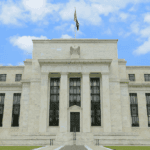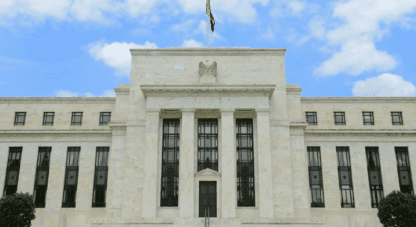Work: The Backbone of Nations
Americans have lived in an environment of excellence and plenty for so long that many of us have no concept of what it’s like without them. We have comfortable homes, highly functional cars, and every consumer good one could dream of. In all of them, excellence is common.
The problem is, it takes hard work to make good things. Really hard work, and lots of it. When you hold an iPhone in your hand, you hold the product of thousands of hours of skilled labor. Many of the laborers have thousands of hours invested in their education and job training. Apple presumably (at least before DEI) selected only the most competent of them to build its products and its empire.
In turn, iPhones affect millions of other hours of labor as they help people plan, communicate, and compute. It’s all very interconnected, but it deeply depends on what has long been termed the Protestant work ethic (though modern Protestantism has done little to encourage the ethic, and many others have picked up the baton): work hard, work well, work readily. Its results? Western Civilization. As the Good Book says, “He who has a slack hand becomes poor, but the hand of the diligent makes rich.” That is the danger to us today.
The barbarians are once again at the gate, but not with battering rams, swords, arrows, and ballistae, rather with pandemic shutdowns, massive entitlement programs, monetary policy that destroys the product of work, and societal memes and policies that encourage people to be only receivers, not givers. If anyone truly wants to make America great again, they must make America work again—not in a token way, rather in a competent, giving, diligent way. That, of course, involves character. And while government policy can affect character, it cannot effect it.
To measure what we have lost would take measuring devices millions of times larger than what we have—which of course is hyperbole. There is nothing that can accurately measure lost character, lost opportunity, lost work, or lost life.
Fortunately, there are many who fight back against this overwhelming tide. Among them are the content creators below, who are the personification of work ethic. Their publications come to you weekly (or daily, in the case of CBB), and are free of charge. You can enjoy them whether or not you are a client. And they are as substantive as anything you have access to today. They are but a small part of what these folks do every week, but they take an incredible amount of planning, effort, and execution to produce.
There is no obligation associated with reading or listening to these publications, and you need feel none. But if you would like to be associated with such an anachronistic group of intelligent, giving, diligent workers who are dedicated to your welfare before you have necessarily spent even a dime with them, then spend some more time on this website or call them at 800-525-9556.
Key Takeaways:
- Thoughts from the ne plus ultra
- France—linchpin for the euro?
- America works—when it can
- When the landscape moves, grab onto something stable
The McAlvany Weekly Commentary: Global Discord: Paul Tucker Interview
In this time of global discord, David reaches out to a former central banker for commentary on current world events. The interview is not to be missed, and is a superb reminder that those who see things in a different way might also have noble aspirations. Those of us who see the economic value in precious metals might regard freedom and national security as the highest priorities, while a globalist (and thus most central bankers) might put peace and global prosperity at the top of their list. But you’ll be in for a bit of a surprise in the interview, in which the estimable Sir Paul Tucker, currently a research fellow at Harvard Kennedy School after having served for three decades in the central banking community, including four years as the deputy governor of the Bank of England, waxes eloquent and profound on the topic of “global discord”—also the title of his latest book. Sir Paul states that, “the first political question is always one of safety and order and security, and we mustn’t forget that. And that needs to be balanced against everybody’s desire for prosperity and trade.” He fleshes that out in a thoughtful way that most will not anticipate. He also discusses how nations that rule under law and those that rule by law can keep from trying to destroy one another, and how nations that come under the rule of law can keep their cultural distinctions—along with much, much more.
Credit Bubble Bulletin: Potential Catalyst and Q1 2024 Z.1
Doug begins his analysis this week with a look at equities. As has become commonplace in recent months, they did well. “At this point, the U.S. equities Bubble has dodged so many bullets that there’s no longer a fear of guns.” He then segues into French politics and the effects they are having on European markets. With rightist and leftist groups gaining ground, Macron has called for elections. It’s a bold move, but could backfire—with serious consequences. “French election stakes are arguably much greater than the [Liz] Truss fiasco. The fledgling UK Prime Minister backtracked and resigned, and the gilts market soon recovered. There will be no quick market fix if the extremists assume effective control of French policymaking. Also, unlike the fleeting UK debt crisis, French election results have the potential to reverberate throughout European debt markets and beyond.” He also discusses the Periphery and Core dynamic as it applies to the fragility of markets, and the fungibility of global liquidity. “There is now a near-term potential catalyst for the type of deleveraging that could trigger major instability and dislocation throughout the levered trades and derivatives universe, including the beloved ‘basis trade.’”
Hard Asset Insights: A New Paradigm
Morgan begins his weekly letter with a tale of two surveys. Popularly referred to as the household and establishment surveys, they are part of the monthly BLS payrolls report. Typically, as Morgan explains, they sing the same tune. The latest reports do nothing of the sort. “Friday’s report revealed a staggering divergence. While the Establishment survey surged by 272,000 payrolls, the Household survey tumbled with a loss of 408,000 jobs.” This is unprecedented in the 76 years the reports have been made, and is ominous. He also provides data showing the loss of full-time jobs and replacement by part-time jobs on a large scale, along with informed commentary from an expert who that believes the true level of job creation is less than 100,000 monthly. Also discussed are consumer spending on needs vs. wants, an update on the recession vs. inflation conundrum, and some crucially insightful thoughts on what currency the world is going to instead of the dollar.
Golden Rule Radio: Reliable Precious Metals
Miles, Tory, and Rob are all back in the studio this week, and begin the program with a review of precious metals price action for the week. All four (gold, silver, platinum, palladium) experienced some volatility and are slightly down. The hosts discuss this in a big-picture context, noting that such pullbacks (especially in gold and silver) no longer result in multi-week or multi-month stagnation, but in resumption of upward travel. The pressure clearly is upward. Tory notes the many factors that are contributing to gold’s strength, including geopolitics, money supply, debt and unfunded liabilities, and monetary policy. The hosts discuss the relative unreliability of the Consumer Price Index as an indicator of inflation given that the CPI is so often adjusted after the fact—something that goes virtually unreported. They then discuss the effects of inflation on people’s thinking, referring to a statement made by ICA’s numismatist perhaps 20 years ago, to wit: what if the Dow doubled and nobody cared? It has doubled and more, and sure enough, nobody cares. It’s no longer a big deal. The hosts apply these effects of inflation to the gold price, and see good things ahead. Rob even makes a bold claim: “[gold] will never be below $–.–” again. Be sure to listen to the program for this information, and far more.














